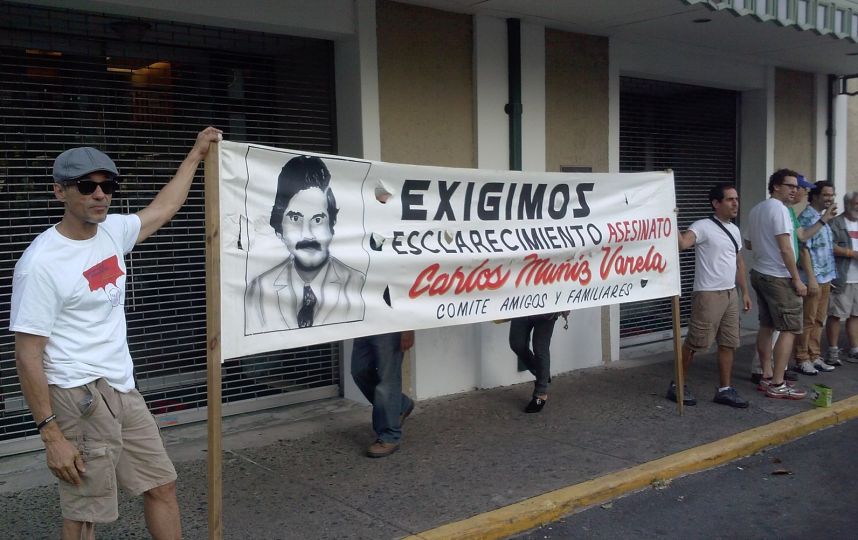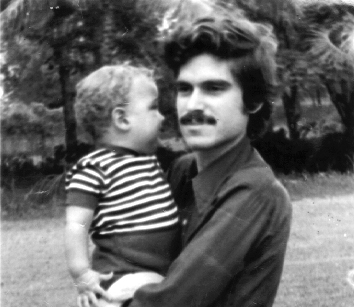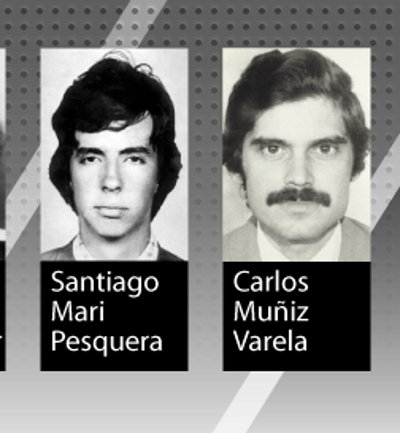
Expose the authorship of two political murders
An El Nuevo Dia editorial
Every day that goes by and justice is deprived of information that is vital to solve the murder of Carlos Muñiz Varela, committed 35 years ago, is a day lost for democracy and the historic memory of a people who must learn who the assassins were, what institutions sheltered them, and what guarantee exists that an act like that never happens again.
 Despite the constant pleas of the family of the murdered youth and the Department of Justice of Puerto Rico, which for years have asked the federal agencies to deliver to the local authorities the inculpatory documents they possess, the Central Intelligence Agency (CIA) has just refused to do so, arguing that it is a matter that’s “still” confidential.
Despite the constant pleas of the family of the murdered youth and the Department of Justice of Puerto Rico, which for years have asked the federal agencies to deliver to the local authorities the inculpatory documents they possess, the Central Intelligence Agency (CIA) has just refused to do so, arguing that it is a matter that’s “still” confidential.
To begin with, the fact that the United States refuses to provide the information it has about an unpunished crime is inconsistent with the effort that itself demands from other nations to assist in the solution of crimes and terrorist attacks.
The assassination of Muñiz Varela, like that of Santiago Mari Pesquera, son of pro-independence leader Juan Mari Bras, had all the characteristics of an attack plotted in the heart of hatred and intolerance.
Two young lives were cut short not only as punishment for their ideas but also in an attempt to terrify the rest of the population and send a message of what might happen to those who held ideas similar to those of the young men who were killed. That is terrorism, in its purest meaning.
It is impossible to say that that stage of political violence in the 1970s, linked to political corruption, has been totally overcome until the facts are clarified and the guilty parties are identified, be they now living or dead.
Some time ago, the documents concerning the assassination of Muñiz Varela, gunned down on April 28, 1979, for promoting tourism trips to Cuba, were partially declassified, which was considered to be a step forward toward the solution of the crime. However, the numerous censored passages prevented the local authorities from going on with their investigation.
In the case of Santiago Mari Pesquera, which led to a conviction, there is still the shadow of a conspiracy that has practically been confirmed, inasmuch as his father, Juan Mari Bras, was the target of numerous threats from terrorist groups that attempted not only to eliminate him but also to weaken him through attacks on his loved ones.
 It was a dark age, and we shudder at the fact that — when Muñiz Varela was killed and for years afterward — we heard the voices of presumed intellectual authors boasting of the crime and regretting not having killed the young man earlier. That apology of terrorism, which at the time should have been answered with the authorities’ visceral condemnation, went by unnoticed.
It was a dark age, and we shudder at the fact that — when Muñiz Varela was killed and for years afterward — we heard the voices of presumed intellectual authors boasting of the crime and regretting not having killed the young man earlier. That apology of terrorism, which at the time should have been answered with the authorities’ visceral condemnation, went by unnoticed.
If the U.S. intelligence agencies — in this case, the CIA — want other countries to cooperate with data that will help to disband criminal gangs, the first thing they must do is to begin at home and declassify that material, which has sat for 35 years in its archives.
The CIA’s coordinator for matters of Information and Privacy, Michele Meeks, insists in retaining the names and circumstances of the assassins of Muñiz Varela, claiming that they are “under the exemptions of the Freedom of Information Law.”
We must stress that this is not a simple disagreement over some minor information being withheld. It is nothing less than the solution of the assassination of a man whose relatives — mother, sister and son — have suffered through three decades of waiting.
(From the Puerto Rican newspaper El Nuevo Dia)


